
Molecular & Cellular Oncology
Scope & Guideline
Unraveling the complexities of cancer biology.
Introduction
Aims and Scopes
- Molecular Mechanisms of Cancer:
The journal investigates the fundamental molecular pathways involved in cancer initiation, progression, and metastasis, including signaling pathways, genetic mutations, and epigenetic modifications. - Therapeutic Development and Targeting:
Research focuses on developing novel therapeutic strategies, including small molecules, biologics, and immunotherapies, aimed at specific molecular targets identified in cancer cells. - Biomarkers and Precision Medicine:
The journal emphasizes the identification and validation of biomarkers for cancer diagnosis, prognosis, and treatment response, contributing to the advancement of personalized medicine in oncology. - Cancer Microenvironment and Metabolism:
Studies explore the role of the tumor microenvironment in cancer biology, including interactions between cancer cells and stromal components, as well as metabolic adaptations that support tumor growth. - Innovative Research Methodologies:
The journal employs advanced research methodologies, including bioinformatics, proteomics, and genomic studies, to uncover new insights into cancer biology and treatment.
Trending and Emerging
- Targeting the Tumor Microenvironment:
There is an increasing emphasis on understanding and targeting the tumor microenvironment, including immune cell interactions and stromal contributions to cancer progression and therapy resistance. - Autophagy and Cancer Metabolism:
Research on the role of autophagy in cancer cell survival and metabolism is gaining prominence, reflecting a deeper understanding of metabolic vulnerabilities in cancer cells. - RNA and Epigenetic Regulation:
Emerging studies are focusing on the roles of non-coding RNAs and epigenetic modifications in cancer biology, revealing their potential as therapeutic targets and biomarkers. - Immunotherapy and Immune Checkpoints:
With the rise of immunotherapy in cancer treatment, there is a growing body of research aimed at understanding and improving the efficacy of immune checkpoint inhibitors. - Genome Editing and CRISPR Technologies:
Recent publications indicate a trend towards utilizing genome editing technologies, such as CRISPR, to identify novel therapeutic targets and understand cancer biology.
Declining or Waning
- Traditional Chemotherapy Mechanisms:
Papers focusing solely on traditional chemotherapy mechanisms have decreased, suggesting a shift towards exploring more targeted and personalized treatment approaches. - Basic Cell Culture Studies:
Research primarily based on basic cell culture models without integration of in vivo or clinical relevance appears to be declining, as there is a stronger emphasis on studies that incorporate more complex biological models. - General Cancer Epidemiology:
Themes related to broad epidemiological studies of cancer incidence and prevalence have waned, with a move towards more mechanistic and targeted research that directly informs therapeutic strategies.
Similar Journals
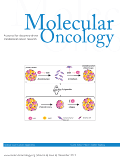
Molecular Oncology
Connecting the Dots in Cancer Biology and Treatment.Molecular Oncology, published by WILEY, is a premier open-access journal that has been at the forefront of cancer research since its inception in 2007. With an impressive impact factor reflective of its outstanding contribution to the field, it holds a prestigious position in the Q1 category across multiple disciplines, including Cancer Research, Genetics, and Molecular Medicine. This journal is essential for researchers and professionals seeking to publish high-quality findings in a rapidly evolving area of study, underscored by its significant Scopus rankings that place it within the top percentiles of Oncology and Molecular Biology. As an open-access journal since 2017, it ensures that vital research is readily available to a global audience, thereby facilitating collaboration and knowledge dissemination among academic and clinical communities. With its commitment to innovative and impactful research, Molecular Oncology continues to be a critical resource for advancing our understanding of cancer biology and treatment.
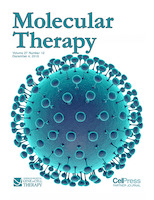
MOLECULAR THERAPY
Exploring the frontiers of molecular biology and therapy.MOLECULAR THERAPY, published by CELL PRESS, is a distinguished journal in the field of molecular biology and therapy, renowned for its significant contributions to drug discovery, genetics, and pharmacology since its inception in 2000. This prestigious journal, which holds a commendable position in the Q1 category across multiple disciplines including Drug Discovery, Molecular Medicine, and Molecular Biology, facilitates cutting-edge research and innovative therapies that aim to improve patient outcomes. With an impressive Scopus ranking that places it among the top journals in its field—such as rank #6 in Drug Discovery and #8 in Pharmacology—MOLECULAR THERAPY is crucial for researchers, professionals, and students seeking to advance their understanding and application of molecular techniques. The journal welcomes high-quality submissions that explore the therapeutic potential of molecular mechanisms, fostering a collaborative spirit within the scientific community to push the boundaries of modern medicine.
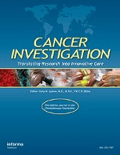
CANCER INVESTIGATION
Exploring the frontiers of cancer research with precision.CANCER INVESTIGATION is a distinguished peer-reviewed journal published by Taylor & Francis Inc, dedicated to the advancing field of cancer research and oncology. With an ISSN of 0735-7907 and E-ISSN of 1532-4192, this journal has been a pivotal resource for professionals and researchers since its inception in 1983, continually contributing to the evolving landscape of cancer investigation until its convergence in 2024. CANCER INVESTIGATION boasts noteworthy rankings in 2023, including Q3 in Cancer Research and Q2 in Medicine (miscellaneous), highlighting its relevance and impact in these critical areas. The journal's commitment to disseminating innovative research and comprehensive reviews makes it an essential platform for those engaged in cancer studies and related disciplines. While currently not available as an open-access publication, CANCER INVESTIGATION remains an invaluable tool for understanding the complexities of cancer, offering insights that drive scientific advancements and improve patient outcomes.

Cancer Reports
Elevating cancer knowledge to improve patient outcomes.Cancer Reports, published by WILEY, is an esteemed open-access journal dedicated to the field of oncology and cancer research. With a focus on disseminating impactful research findings since its transition to fully open access in 2021, Cancer Reports aims to facilitate knowledge sharing among researchers, clinicians, and healthcare professionals globally. The journal is positioned within the Q3 quartile for both Cancer Research and Oncology categories as of 2023, reflecting its commitment to quality and relevance in a competitive publishing landscape. With an ISSN of N/A and an E-ISSN of 2573-8348, the journal showcases studies across diverse aspects of cancer biology, treatment modalities, and patient care strategies. Located in the United Kingdom at 111 River St, Hoboken 07030-5774, NJ, Cancer Reports strives to contribute to the advancement of cancer research and improve health outcomes for patients worldwide, making it a pivotal platform for scholars and practitioners in the oncology community.

CANCER AND METASTASIS REVIEWS
Transforming Insights into Effective TherapiesCancer and Metastasis Reviews, published by Springer, is a leading journal in the field of oncology and cancer research. With an impressive impact factor placing it in the Q1 category for both Cancer Research and Oncology as of 2023, this journal is ranked 29th out of 404 in Medicine, Oncology, and 22nd out of 230 in Biochemistry, Genetics, and Molecular Biology, reflecting its significant influence and prestige in the academic community. Established in 1982, the journal covers a wide spectrum of topics related to the mechanisms of cancer progression and metastasis, making it an essential resource for researchers, healthcare professionals, and students dedicated to understanding and tackling cancer. Although the journal does not provide open access options, the impactful research it publishes contributes to advances in therapeutic strategies and enhances the collective knowledge surrounding cancer pathophysiology. With research converging from 1982 to 2024, Cancer and Metastasis Reviews continues to be a vital platform for disseminating high-quality scientific information in the ever-evolving landscape of cancer research.

Blood Cancer Discovery
Fostering a Global Dialogue on Hematologic AdvancementsBlood Cancer Discovery is a premier academic journal published by the American Association for Cancer Research, dedicated to advancing the understanding of hematologic malignancies through cutting-edge research in the fields of oncology, biochemistry, and molecular biology. With an impressive impact factor and recognition as a Q1 journal across multiple disciplines, including cancer research and hematology, Blood Cancer Discovery serves as an essential platform for scholars and practitioners alike, facilitating impactful discourse and dissemination of pioneering findings. This open-access journal, established within the vibrant academic landscape of the United States, aims to bridge gaps in research and foster collaborations to ultimately enhance patient outcomes. Its Scopus rankings demonstrate its vital role in the critical advancement of cancer research and therapeutic development. By inviting contributions from a diverse range of disciplines, Blood Cancer Discovery is poised to drive innovation and inspire future advancements in understanding blood cancers.

CARCINOGENESIS
Unraveling the Mysteries of CarcinogenesisCARCINOGENESIS, published by Oxford University Press, is a premier journal dedicated to the nuanced field of cancer research. With an ISSN of 0143-3334 and an E-ISSN of 1460-2180, this esteemed journal plays a crucial role in disseminating high-quality research findings since its inception in 1980, making it a cornerstone in the exploration of carcinogenic processes. As of 2023, it stands out with a commendable Q2 ranking in Cancer Research and a Q1 ranking in Medicine (miscellaneous), reflecting its significant impact in advancing knowledge in these vital areas. Supported by a strong Scopus ranking, specifically holding the 61st position out of 230 in Biochemistry, Genetics, and Molecular Biology within Cancer Research, CARCINOGENESIS provides researchers, healthcare professionals, and students access to peer-reviewed articles that cover a broad spectrum of topics related to cancer etiology, prevention, and treatment. Although it is not an open-access journal, its commitment to excellence ensures that every published article contributes meaningfully to the global fight against cancer, making it an essential resource for those engaged in cutting-edge cancer research.

CELL RESEARCH
Unveiling the Mysteries of Cellular MechanismsCELL RESEARCH is a premier peer-reviewed journal dedicated to advancing the field of cell biology and molecular biology, published by SpringerNature. With an impressive impact factor and consistently ranking in the Q1 quartile for both cell biology and molecular biology, this journal serves as a pivotal resource for researchers, professionals, and students seeking to explore the latest discoveries and advancements in cellular mechanisms and their implications for health and disease. Since its inception in 1996, CELL RESEARCH has cultivated a distinguished reputation, currently boasting ranks in the top percentile of Scopus categories, reaffirming its influence and relevance to the scientific community. Although it is not an Open Access journal, its rigorous selection process ensures the publication of high-quality articles that contribute significantly to our understanding of life sciences. For those deeply engaged in the realms of biochemistry, genetics, and molecular biology, CELL RESEARCH is an essential conduit of innovative research and critical insights.
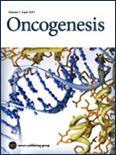
Oncogenesis
Leading the charge in oncogenesis research and education.Oncogenesis is a prestigious open access journal, published by SpringerNature, dedicated to advancing our understanding of cancer biology and molecular mechanisms of oncogenesis. Since its inception in 2012, this journal has quickly established itself as a leading platform for innovative research, being ranked in the Q1 quartile in both Cancer Research and Molecular Biology categories for 2023. With an admirable impact factor that reflects its exceptional quality, Oncogenesis is indexed in Scopus, holding notable rankings in both Molecular Biology and Cancer Research, placing in the 87th and 83rd percentile respectively. The journal not only facilitates the dissemination of groundbreaking research but also encourages collaboration among scientists and healthcare professionals across the globe. By offering open access to its articles, Oncogenesis ensures that vital findings reach a diverse audience, fostering a deeper dialogue and understanding in the fight against cancer. Based in the United States but with a global reach, the journal remains committed to publishing high-impact studies that contribute to the advancement of knowledge in the realms of oncology, biochemistry, and genetics.
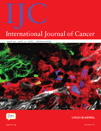
INTERNATIONAL JOURNAL OF CANCER
Advancing cancer research for a healthier tomorrow.INTERNATIONAL JOURNAL OF CANCER, published by Wiley, stands as a premier platform for the dissemination of cutting-edge research in the fields of cancer research and oncology. With an impressive impact factor reflecting its rigorous peer-review process and significant contribution to the scientific community, this journal is categorized in Q1 for both Cancer Research and Oncology as of 2023. It boasts notable rankings, being placed 38th among 404 journals in Medicine - Oncology and 32nd among 230 in Biochemistry, Genetics, and Molecular Biology - Cancer Research, positioning it within the 90th and 86th percentiles, respectively. Since its inception in 1966 and continuing to 2024, the journal has played a pivotal role in advancing our understanding of cancer biology, treatment modalities, and innovative therapeutic approaches. While it operates under a subscription model, the journal is committed to making valuable research accessible to a broader scientific audience. Researchers, professionals, and students alike will find the INTERNATIONAL JOURNAL OF CANCER an essential resource for staying abreast of the latest advancements in cancer science.